SUMMARY
This is AI generated summarization, which may have errors. For context, always refer to the full article.
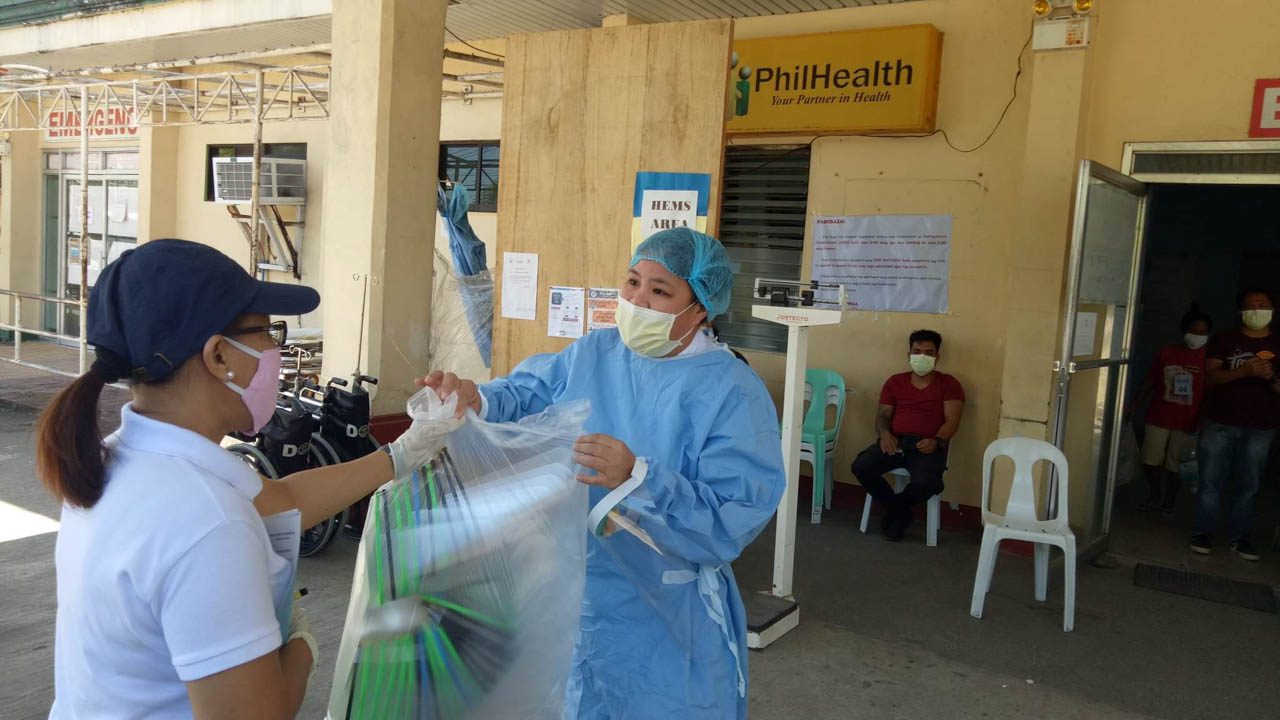
BACOLOD CITY, Philippines – Schools in Negros Occidental have been in the forefront of the bayanihan effort in the time of the coronavirus pandemic, providing meals and spearheading donation drives since the province was placed under an enhanced community quarantine (ECQ) on March 30.
Among those helping the frontliners and vulnerable groups are Higher Education Institutions (HEIs) such as the Technological University of the Philippines (TUP) Visayas in Talisay City, West Visayas State University (WVSU) Himamaylan City Campus, University of St. La Salle (USLS) in Bacolod City, and Carlos Hilado Memorial State College (CHMSC) in Talisay City.
Before the imposition of the ECQ through an executive order signed by Governor Eugenio Jose “Bong” Lacson, the whole province was placed under General Community Quarantine (GCQ) on March 15 that advised HEIs to suspend classes and operate through a skeleton force.
3D printed face shields
In the northern part of the province, TUP Visayas together with its partner organization, Negros Women for Tomorrow Foundation (NWTF), initiated the mass production of protective face-shields using 3D printers. The project was launched on March 24.
According to the online working staff, the project was their response to address the scarcity of personal protective equipment (PPEs) for medical and border control frontliners in various parts of the province.
“The Technological University of the Philippines-Visayas led by its Campus Director, Eric Malo-oy stays true to its commitment to continuously contribute to the government’s effort towards improving the efficiency in the delivery of public service by gathering its team to establish a 3D printing farm to produce protective face shields using the University’s 3D Printers,” they said.
Working on this initiative meant no weekends for the volunteers to reach their monthly quota of 4,000 face shields at the DOST-TUP V Hive – a mechanical production site which they refer to as the “printing farm” located in Bata Village, Bacolod City.
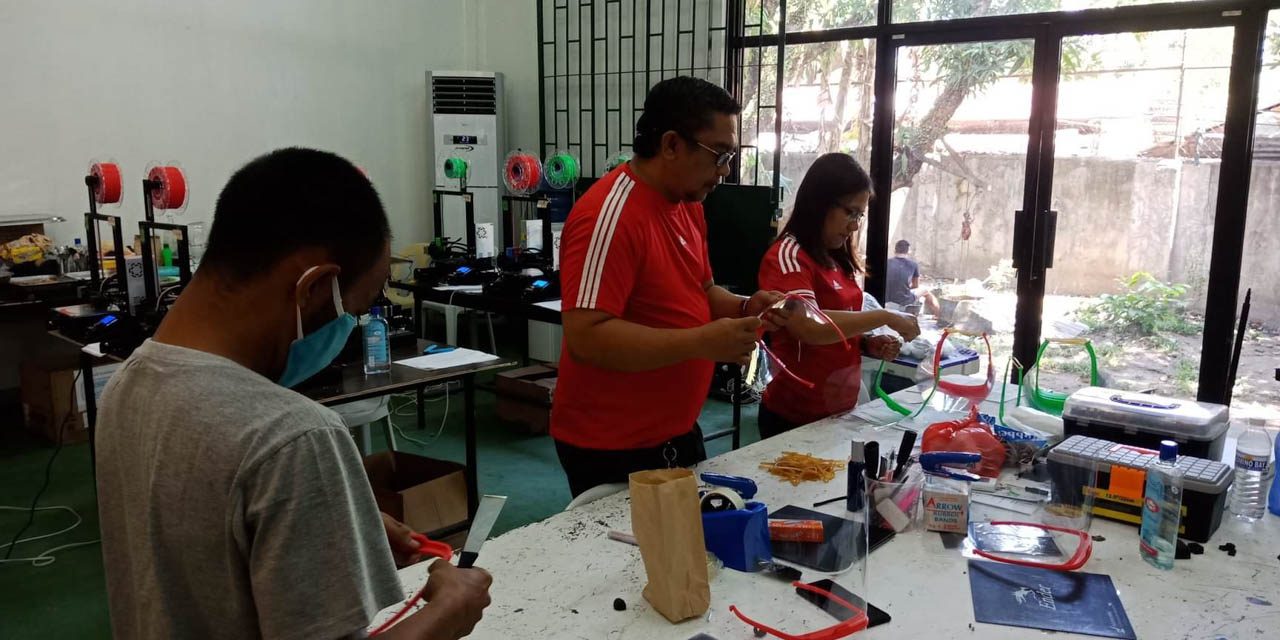
It usually takes an hour and a half for one 3D printing device to produce one face shield frame. With this capacity, all the 31 units can approximately operationalize 300 pieces of shield frames a day.
When the face shield frame made of Polylactic Acid is done, it is being assembled with a cover made of Polyvinyl Chloride (PVC).
Much of the production cost was funded by the NWTF through its Director for Special Project, Raymond Serios, who provided 20 units of 3D printers. The university’s Mechatronics Department led the operation of 3D printers for the manufacturing of face shields.
“The main budget was channeled by the NWTF, a micro-financing institution. The university focused on the technical grounds particularly in productions, delivery management, and operational management,” the team said.
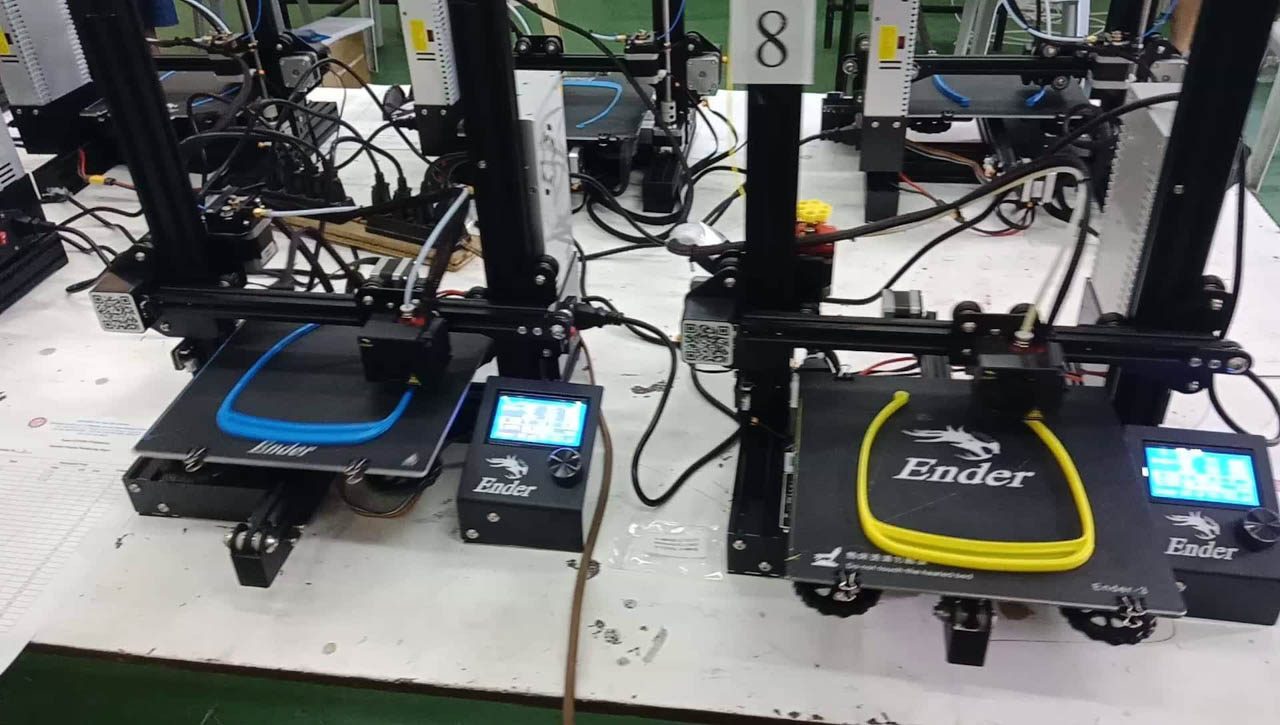
By Day 16 of the operation, the team has produced a total of 2,865 pieces of 3D printed face shields distributed to hospital units and border control points as far as Hinobaan town to San Carlos City in the south and north Negros, respectively.
They have also started fabricating misting booths, a disinfecting equipment designed for buildings like hospitals to minimize the pathogen’s probability of entering the medical vicinity.
Packed meals
In southern Negros, the Himamaylan City satellite campus of Iloilo-based West Visayas State University (WVSU) has been assisting the Local Government Unit (LGU) in cooking and packing meals for the first responders of the city.
“When the lockdown or ECQ issue arose, the city mayor of Himamaylan City approached me if the campus is willing to take charge of preparing the food for frontliners of the city. After securing the nod of our campus nurse, Honeylen Makilanto, to head the whole activity, I right away informed the mayor of our willingness to accept the task,” said Dr. Genesis Camarista, campus administrator.
Roughly 36 volunteers comprised the workforce of students from the campus’ medic and first-aid organization, faculty, alumni, parents, and LGU representatives who tirelessly prepare 6 meals a day – this means cooking and packing meals from breakfast to midnight snacks since March 26.
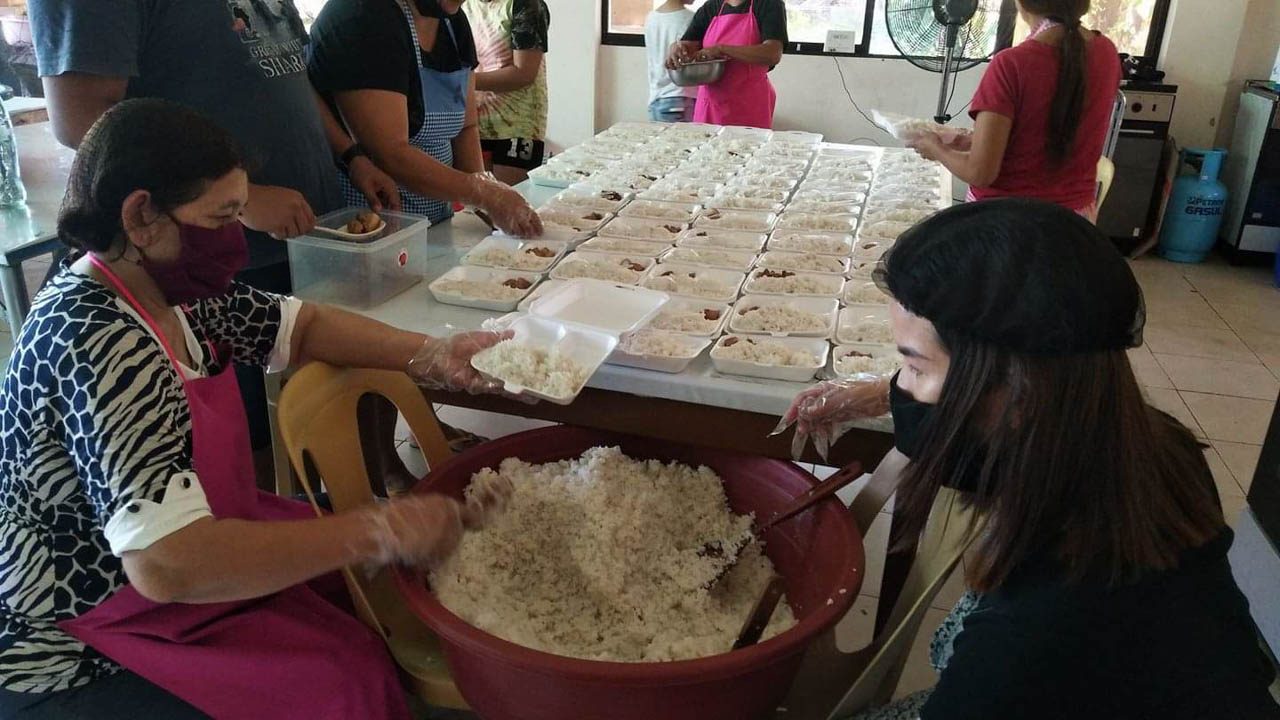
“Sometimes we end up at midnight preparing for the next day, cleaning and disinfecting the kitchen, and washing the utensils,” said Camarista who also lends his car for the delivery of food packs.
The LGU provided them with agricultural products purchased from the produce of local farmers in Himamaylan City.
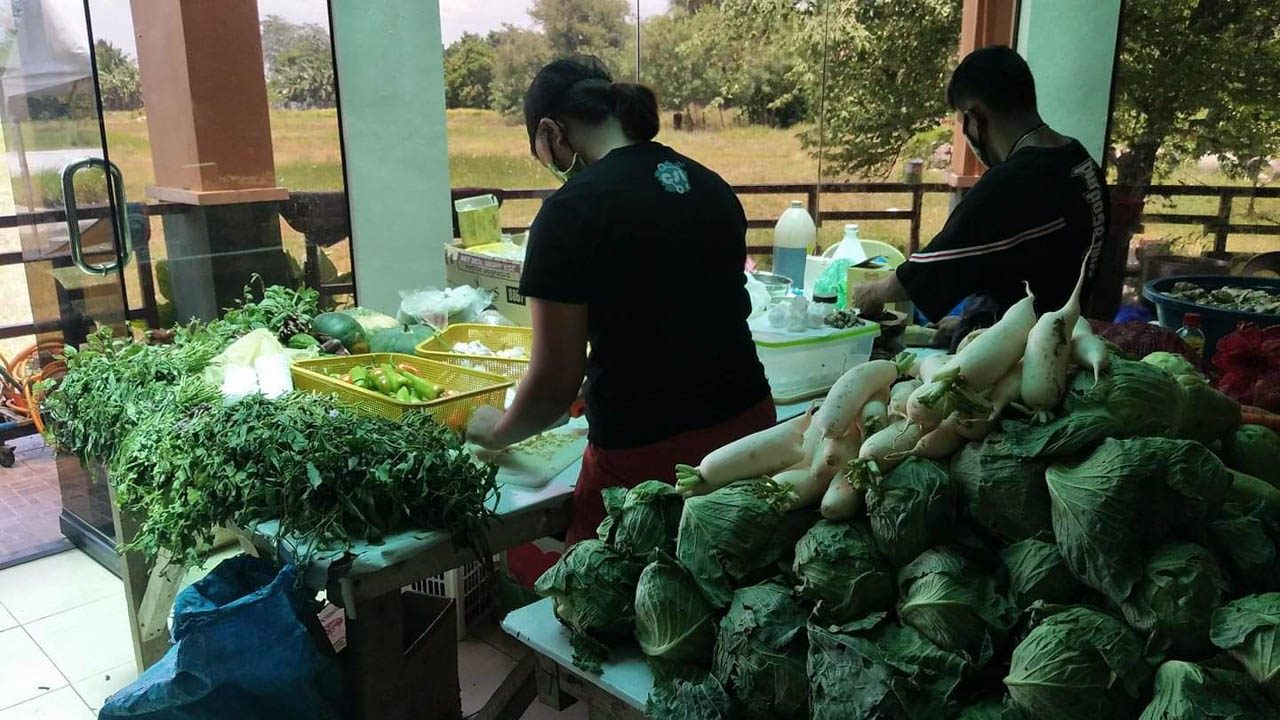
Camarista said that the 1,200 packed meals distributed daily benefits 14 sectors that includes a feeding program for approximately 80 to100 children in Himamaylan City.
Donation initiatives
Call for donations in cash and in kind were circulated online by Facebook pages of CHMSC-Talisay and USLS-Bacolod as their way of generating help for medical and marginalized sectors.
CHMSC-Talisay called their donation drive as the “CHMSCyanihan Kontra COVID-19” and was able to generate P50,000 mostly from faculty, students, and staff.
As of April 2, they have distributed 1,200 food packs shared by 1,600 families in the towns of Murcia, E.B. Magalona, component city of Talisay, and Bacolod City through a Food Aid Caravan sponsored by the Jollibee Group Foundation .
On March 29, members of De La Salle Brothers of USLS-Bacolod started providing 100 hygiene kits to the health workers of the Doctors Hospital and Corazon Locsin Montelibano Memorial Regional Hospital who are housed in the two safe shelters of De La Salle Philippines in USLS-Bacolod.
These shelters are USLS-Bacolod’s Balay Kalinungan and the Nursing and Medicine campuses that opened on March 29.
The De La Salle Brothers of Bacolod were also able to solicit P45,200 in donations as of April 1.
The ECQ in Negros Occidental was initially set to end on April 14 but the governor signed Executive Order No. 20-20-A on April 8 extending the lockdown to April 30. (READ: Negros Occidental eases restrictions on enhanced community quarantine) – Rappler.com
Add a comment
How does this make you feel?
There are no comments yet. Add your comment to start the conversation.